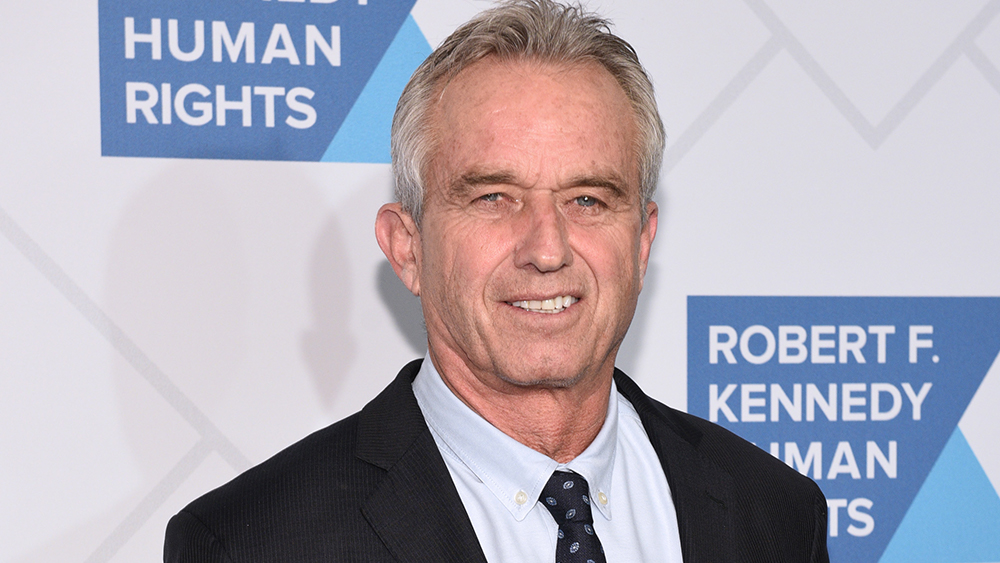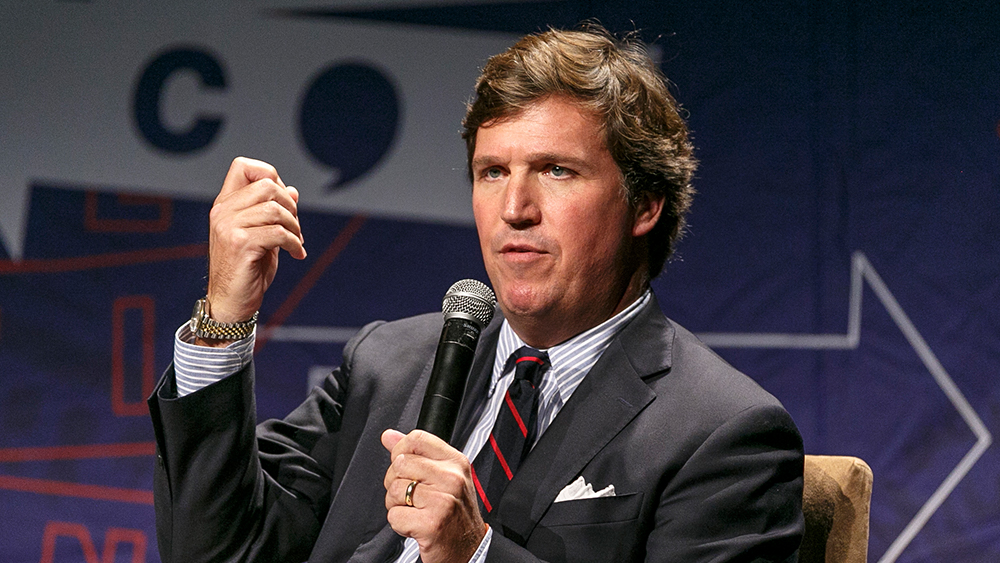New guilty pleas unlikely to bolster Georgia case against Trump
10/31/2023 / By Richard Brown

Three former legal advisers to ex-President Donald Trump have recently entered guilty pleas in an ongoing criminal case in Fulton County, Georgia. However, legal experts, including former prosecutor David Gelman, believe that these plea deals are unlikely to significantly impact the prosecution’s case against the former president.
In August, Fulton County District Attorney Fani Willis charged Trump and 18 other individuals, accusing them of conspiring to unlawfully overturn Georgia’s 2020 election results. (Related: Donald Trump pleads not guilty to ginned-up charges of attempting to overturn 2020 election results.)
Attorney Sydney Powell, who supported efforts to challenge the 2020 election results, pleaded guilty on Oct. 19 to six misdemeanor charges.
The following day, attorney Kenneth Chesebro accepted a plea deal, admitting to one felony count of conspiracy to commit filing false documents.
Jenna Ellis, another attorney who supported Trump’s efforts to challenge the 2020 election results, also pleaded guilty on Oct. 24 to a single felony count of aiding and abetting false statements and writings.
Scott Hall, a bail bondsman charged in the Fulton County case, also entered a plea deal last month, acknowledging responsibility for five misdemeanor counts of conspiracy to commit intentional interference with the performance of election duties.
As part of their plea agreements, Chesebro, Hall, Powell and Ellis have agreed to testify for the prosecution as the case proceeds against Trump and the remaining co-defendants.
David Gelman, a former assistant county prosecutor and now a defense attorney, suggested that the early plea deals might be a strategy to pressure other defendants in the case to cooperate and potentially isolate Trump legally.
Plea deals are not rare
Gelman noted that it’s common for defendants to enter plea deals because they may struggle to cover their legal expenses, and he believes more defendants in this case may opt for plea agreements.
Regarding Trump’s legal strategy, Gelman emphasized that the key question is what the other co-defendants will offer in their testimonies. Defense attorneys will have the opportunity to cross-examine these individuals who have agreed to plea deals and will testify against the former president.
Gelman argued that unless these co-defendants can prove that Trump explicitly ordered them to commit certain actions, they won’t be able to demonstrate his intent to commit a crime.
The August 14 indictment alleges that Chesebro recommended the Trump campaign’s strategy of nominating alternate slates of electors in states where the 2020 election results were challenged. It also claims that Powell and Ellis made false statements concerning election fraud in Georgia.
The indictment accuses Powell of various unlawful behavior while inspecting election equipment in Coffee County, Georgia, and details efforts by Ellis to convince legislators in multiple states to allow the appointment of alternate elector slates and delay the certification of the 2020 election results.
Despite these guilty pleas, experts suggest that proving Trump’s intent to commit a crime remains a formidable challenge for the prosecution.
To secure a conviction against Trump, prosecutors will face two significant hurdles.
First is the common challenge encountered in most white-collar cases: establishing intent.
Proving a defendant’s state of mind is often the most daunting aspect of white-collar investigations. Engaging in activities like keeping information confidential or making payments is not inherently illegal, and there’s nothing necessarily unethical about such actions.
What sets these actions apart as crimes, such as bribery, blackmail, or obstruction of justice, is intent, a concept referred to in criminal law as “mens rea.” It is the crucial factor that distinguishes lawful business practices like nondisclosure agreements and trade secret protection policies from criminal activities.
In this particular case, prosecutors must demonstrate that Trump not only had the intention to deceive state officials by concealing the payments but also that he had a deliberate plan to hide his involvement in a separate crime.
On one hand, persuading a jury to accept such a precise understanding of a defendant’s mental state can be challenging, particularly when the defendant avoids written communication and has a history of destroying records.
On the other hand, the sheer quantity of charges related to the same underlying event sends a clear message that the prosecutors believe Trump was fully aware of his actions and specifically intended to maintain the secrecy of his affair.
Find more stories like this at Trump.news.
Watch Mandy O’Brien’s report about Jenna Ellis pleading guilty in Georgia.
This video is from the Pool Pharmacy channel on Brighteon.com.
More related stories:
Biden’s Justice Department might file a THIRD INDICTMENT against Donald Trump.
Sarah Palin warns of SECOND CIVIL WAR if political persecution of Donald Trump continues.
Donald Trump Jr. says his father is a THREAT to Deep State, Uniparty and Democrats.
Sources include
Submit a correction >>
Tagged Under:
big government, conspiracy, David Gelman, deception, deep state, Donald Trump, fascism, indictment, Jenna Ellis, Kenneth Chesebro, politics, rational, rigged, Scott Hall, smeared, Sydney Powell, traitors, truth, Tyranny
This article may contain statements that reflect the opinion of the author
RECENT NEWS & ARTICLES
COPYRIGHT © 2017 RIGGED NEWS



















